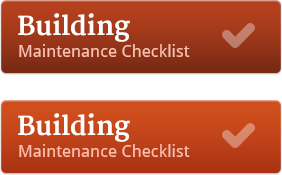Let’s face it, buying and maintaining commercial buildings are costly ventures and can be extremely time consuming. At some stage business owners will have to result to hiring specialist inspectors to investigate on the highlights and condition of the structure they are eyeing before closing the deal. But the process does not end there; money will be spent for future repairs and to ensure property value.
However for most business owners having an eye for detail and an Inspection Checklist of their own can work to their advantage. Remember that the goal of the inspection is to determine if the building is structurally sound and how much would it cost to get repairs and renovations done. The best way to go about it is to do a comprehensive inspection yourself or hire a contractor to do it for you.
“You can’t build a great building on a weak foundation.”
- Gordon B. Hinckley
The first things to inspect in a commercial building are its structure and foundation. Inspection checklists may vary depending on the building’s location, size, complexity, age and other distinct details. Checking a building’s foundation and structure allows us to gain foresight in the state or condition of the building. This process will include the analysis of steel, wood and concrete features of the structure. Make sure to also pay attention on the condition of the roof. This part of the building is the first thing inspectors bestow particular attention to, especially when the age of the building is in question.
Checking the exterior does not only mean being up-close and personal, try doing it from a distance. Once you have a clear view of the building then ask yourself if it seems to appear uneven. If it is, then you have a foundation problem in your hands. Likewise check for any cracks or holes on the foundation; if you find any that comes off as not properly seated this can be a cause for alarm.
“Don’t build a glass house if you’re worried about saving money on heating.”
- Philip Johnson
One of the most expensive parts to replace in a commercial building is the heating and air conditioning; you will have to make sure that they are in fair condition. You can ascertain the condition of the HVAC unit by adjusting the thermostat. Try to put in different levels so that it blows both cold and hot air. At the same time, try to listen to any noise coming from the machine. Pay particular attention to the noise produced at the start up and shut down. If you detect a type of noise you are not accustomed to hearing in other HVAC, you may have to contact an HVAC technician.
Building inspectors will test and assess the heating and ventilating system based on state and federal codes and regulations. In this case it is always better to seek reassurance from a contractor that the systems are definitely in good working condition.
“In case of fire, exit building before tweeting about it.”
- Anonymous
Fire safety routes and exhaustive fire suppression system are a must in all commercial buildings. It is important that inspectors see that fire escapes, fire extinguishers and sprinkler systems are working properly. You might also want to point out that these things are accessible for all building users.
“Electricity is really just organized lighting”
- George Carlin
The first thing to note about the electrical system of a building is if it is appropriate for the proposed or current use of the building. Even though a lot of changes occur to the building over time, inspectors have the tools and knowledge to assess if the electrical system of a building is still safe and effective. Their assessment result will either help or prevent you from passing compliance evaluations.
However do not let that hinder you. One of the things you can do on your end is to visually inspect the inside and outside of all circuit boxes if they are still in good condition. To get an idea of how old the building’s wiring might be you can check the wiring found in the attic space. You can also check all the outlets, look for any darkened parts since that is a clear indication that that particular outlet has smoked out in the past. Be cautious of any exposed wires and look for an electrician if you notice anything out of the ordinary.
“We built tall buildings, but we have not become any taller.”
- Dejan Stojanovic, The Sun Watches the Sun
Local Codes
Local codes and regulations on commercial buildings vary from state to state. For some, the local codes may appear to relate to different climatic conditions or geographical locations experienced in a particular state. To others, environmental codes may play an important factor. Environmental codes can stipulate on the type of materials, energy efficiency and insulation used in a building.



